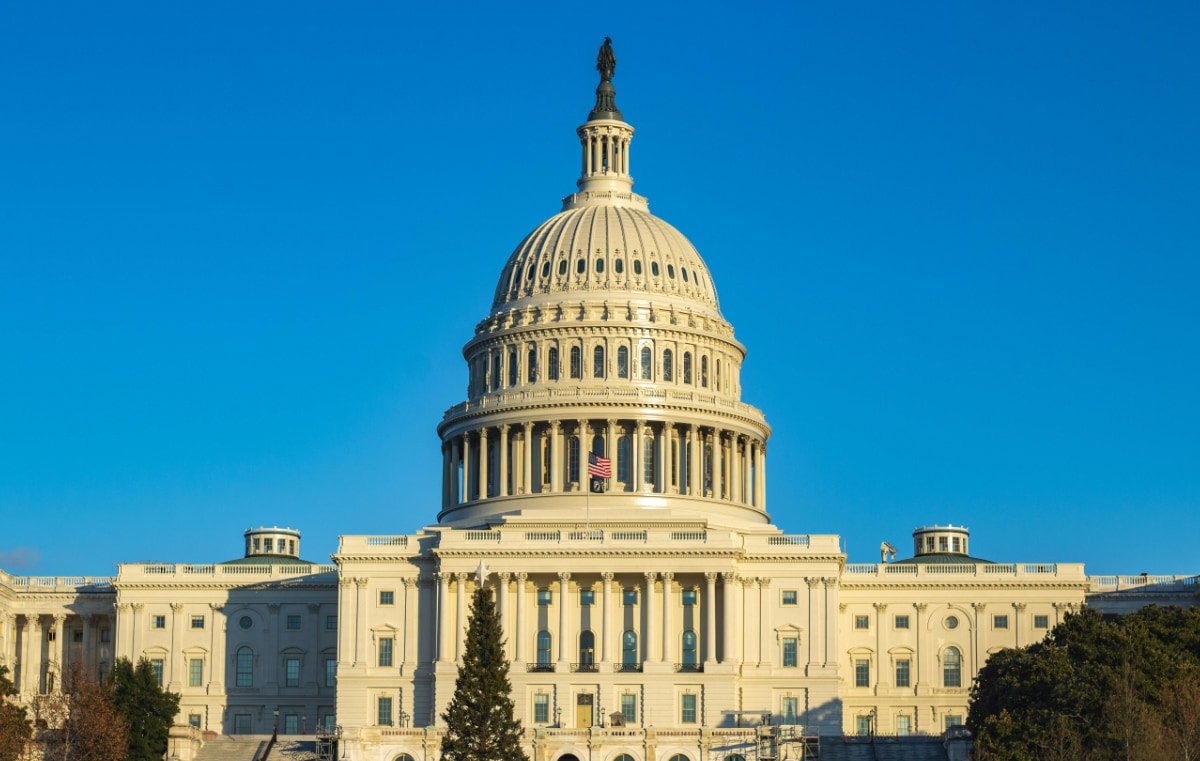
Ford School professors Brian Jacob, Betsey Stevenson, and Justin Wolfers are among a bipartisan group of economists who signed a letter urging Congress to expand funding for modernizing U.S. statistical systems.
“Data provided by the federal statistical system are the lifeblood of the U.S. economy. The data fuel decision-making across every sector of the economy and in every corner of the country,” the letter begins, noting that families, workers, entrepreneurs, existing businesses, and federal, state and local government entities “rely on timely, accurate, and granular economic data to make policy for the nation.”
The letter was sent to members of House and Senate Appropriations subcommittees which oversee the Bureau of the Census, National Institute of Standards and Technology, and National Science Foundation.
“Betsey, Brian and I are part of a bipartisan group of economists calling on Congress to fund a serious modernization of this system,” says Wolfers. “The goal is not to replace the old surveys entirely, but to update the way we gather, integrate, and deliver data. Think of it like upgrading from an analog power grid to a smart grid. You still need electricity flowing while the system is rebuilt, but when the upgrade is done, you get faster, more detailed, more reliable service. That’s what we want from our economic data: a modern system that uses not just surveys, but also administrative data and responsibly harnessed private-sector information, all protected by rigorous privacy standards.”
“Our statistical agencies are outstanding—steadfast and prolific producers of the most consumed and scrutinized economic indicators in the world. The economy is changing rapidly, however. Without focused and funded efforts to modernize how these essential statistics are collected and produced, the quality and quantity of the system’s output are at risk,” the letter states.
Stevenson says the statistical agencies across the government have been underfunded. “[They] have had flat or declining budgets in inflation adjusted terms for more than a decade, even as the value of reliable data has grown. Reliable, representative data is a public good in the classic economic sense.”
Wolfers agrees. “The U.S. statistical system—run by agencies like the Census Bureau and the Bureau of Labor Statistics—provides the foundational data that powers economic decision-making. It tells us how fast the economy is growing, where inequality is rising, where to build schools or transit, how to target tax credits, and so much more. But the infrastructure behind these vital statistics was built for a different era, and it’s falling behind.”
Jacob noted, “Data is essential for making smart decisions about public policies. Data helps us determine where problems exist and often points us to potential solutions. Our government's statistical agencies need adequate funding and flexibility to modernize their data systems, which will include taking advantage of the powerful AI tools now available in academia and the private sector."
Specifically, the economists call on Congress to grant the nation’s primary economics statistics agencies flat or increased FY 2026 appropriations in real terms. In the case of the U.S. Census Bureau, they call on Congress to fully fund both current and periodic surveys to ensure that base programs get the investment they need as Decennial Census preparations proceed. As well, they call on the Executive Branch to explicitly embrace the agencies’ long-awaited modernization plans and grant them flexibility in spending the money appropriated to them. Statistical agencies should be trusted to procure the talent and technology they need to accomplish their missions.
Stevenson also emphasized that “there are inefficiencies in our current statistical system, but they are not inefficiencies that will be solved by laying off workers. Instead they are inefficiencies that require an upfront investment in streamlining and modernizing the system in order to eliminate.”
The letter concludes, “The payoff from deftly navigating this moment could be huge. The advent of artificial intelligence (AI) promises to revolutionize how data are both produced and consumed. Efforts to make federal data AI-ready promise to cement the nation’s advantage in this industry of the future.”
Other U-M professors who signed include Basit Zafar, Charles Brown, Christopher L. House, Margaret Levenstein, Robert J. Willis (emeritus), and Warren Whatley (emeritus).
The letter was sent to Reps. Hal Rogers (R-KY), Chair, and Grace Meng (D-NY), Ranking Member, House Appropriations Subcommittee on Commerce, Justice, Science, and Related Agencies, and Sens. Jerry Moran, (R-KS) and Chris Van Hollen (D-MD), Ranking Member, Senate Appropriations Subcommittee on Commerce, Justice, Science, and Related Agencies.`
The letter was copied to Commerce Secretary Howard Lutnick, Labor Secretary Lori Chavez-DeRemer, National Economic Council Director Kevin Hassett, as well as the heads of the Senate and House Appropriations Committees.


